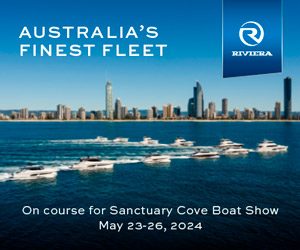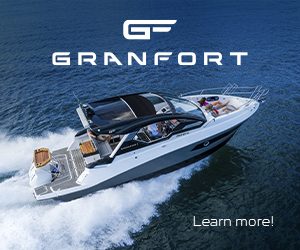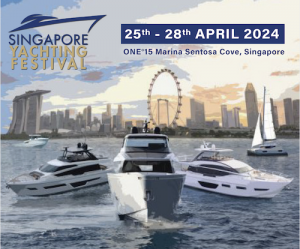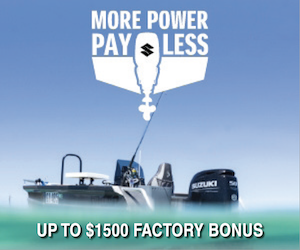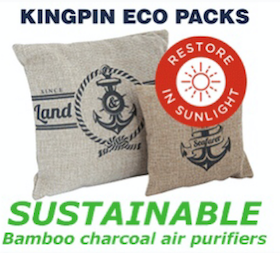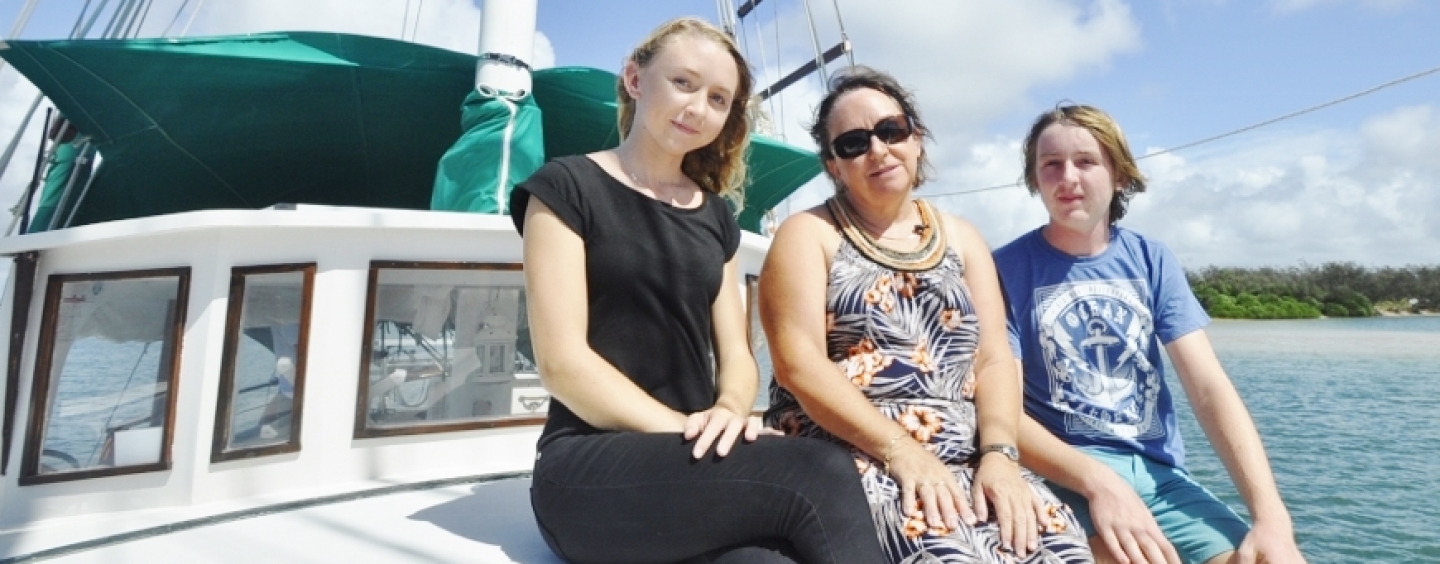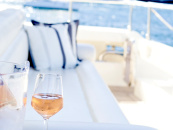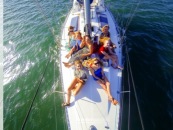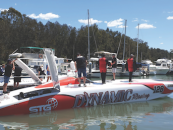I have been living on board my yacht now for about 4 1/2 years. In that time I have had the pleasure of living in West Australia, South Australia (including Kangaroo Island), Victoria, New South Wales and Queensland. I have spent significant amounts of time in Sydney Harbour, Port Stevens and the Whitsunday Islands, and now the lovely waterways of the Gold Coast Broadwater.
While living on board I have been giving my children the most amazing education about this amazing country of ours and have been fortunate to be able to pursue my own interests—namely, establishing an on-going support organisation for victims and survivors of abuse.
Everywhere we go, people tell us what an amazing choice we have made, marvel at the well-roundedness of our kids, remark about how respectful and open they are. And yet, despite the fact that we have contributed in a very significant way to something as important as assisting people to recover from abuse, and despite the fact that as we travel we contribute to every town we spend time in, apparently, the very fact of living on board a yacht makes us ‘freeloaders’.
Well, I would like to tell you about some of the amazing ‘freeloaders’ my family and I have been privileged to meet over the last four years—including now, right here on the Gold Coast.
The people I meet
There have been a great many retired teachers—one a former woodwork teacher and his wife—lovely people who, in retirement, had decided to move aboard their weekend recreational vessel and give themselves a well-earned break, exploring more of our great landscape by sea.
Then, there is a special education teacher who spent years of her life trying to assist disabled children to reach their potential.
There is the retired ferry builder whose passion for boats has filled his whole life. What better way to spend his well-earned retirement days than afloat on a boat of his own design and making!
Early on in my ‘freeloading’ live-aboard days, I met Pete, the local school bus driver who called his boat his home, after splitting with his wife and leaving the house to her. And then there are the pilots who wanted a life that would leave a smaller carbon footprint on the planet and who chose to forego the trappings of the yuppie lifestyle and instead live a simple life without many luxuries aboard their small yacht, while flying sea planes for a charter company.
There are the fly-in fly-out miners who found a place to call home on a catamaran that they could relax in on their few days off a month.
We have met students, businessmen and their families, doctors, nurses, former public servants and policemen, men who have served in our armed services at great cost to their personal lives, journalists and writers who continue to eke out a living with their pen in the comforts of their floating abodes.
A life choice
People choose to live aboard their vessels for as many different reasons as they choose to live in houses and drive cars. There is no one ‘type’ and at least half are self-funded retirees or age pensioners, while the other half is made up of a multitude of workers of various sorts, seasonal workers, part-time workers, workers from home, and writers. In the four and a half years we have lived on board, we have come across half a dozen people who live on board because they do not want to work or be contributing members of society.
The label ‘freeloader’ is levelled at us because of a perception that we live for nothing in places where others are charged a hefty system of taxes and duties. But what is rarely acknowledged is that most live-aboards have made this choice later in life after having led meaningful lives where they have made contributions like everyone else.
Folks who live aboard here on the Gold Coast are still members of the local community. We shop in the same shops as our land-neighbours, eat in the same cafes and restaurants, drive our cars, fill them with the same fuel, pay our various taxes—GST, income tax—for work we do, and happen to go home at night to a boat that floats rather than a house that remains firmly planted on the ground.
Many of us volunteer in a variety for ways—as bush firemen, as VMR and Coastguard members, as JP’s and counsellors. Our children attend schools and universities. We pay our way in the community in so many ways.
But do not worry—it is not all a bed of roses. When the wind howls and you are safely tucked up in your solid and stable house, the ‘freeloader’ has a slightly more active time of it. Watching out for other boats that might drift with the gusty wind—especially those that have been abandoned or left unattended—making sure our own boats hold fast. We might have sleepless nights and restless days when we are watching and monitoring the weather waiting for it to ease. When it rains and we have to get to work, we might have an added layer of difficulty in needing to hop into a wet dinghy and drive it in the rain to the shore. And when the weather is really closing in, we might be stuck on the boat for days at a time—needing to make do with what stores we have until the weather changes.
It is not always an easy choice. But please do not make the mistake so many do and think we are all a bunch of “dole-bludging ne’er do wells”. We are simply people who love boats enough to make them our homes. You will see us out and about—often in the evenings or early mornings cleaning up after other visitors have long since driven away, removing the bottles and cans left behind—or out on the water helping stranded jet skiers or paddle-boarders who have misjudged the tide.
We choose a simple life, but I don’t think that necessarily makes us all ‘freeloaders’.
By Sue Parry-Jones


